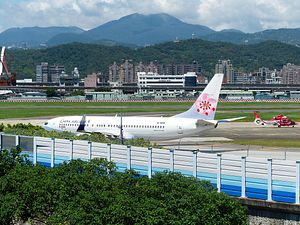To develop friendly relations among nations based on respect for the principle of equal rights and self-determination of peoples, and to take other appropriate measures to strengthen universal peace.
The spirit of the United Nations, describe in the section of the UN charter cited above, will not be on display at the International Civil Aviation Organization (ICAO) meeting tomorrow. The UN regulatory agency responsible for setting industry standards for the aviation industry has decided to not to invite Taiwan (Republic of China) to their next conference, to open in Montreal on September 27.
Taiwan’s lack of an invitation follows on the heels of a downgrading of its delegation to the World Health Assembly, and is the result of a wider campaign of pressure by Beijing to isolate Taiwan from the international community.
It’s a troubling trend — the exclusion of Taiwan’s government, representing the island’s 23 million citizens, from an international conference about aviation regulation for the sake of Beijing’s pursuit to assimilate or conquer the politically independent island.
Beijing’s participation in world regulatory bodies won’t cease if Taiwan is given a seat at the table, despite whatever threats or claims they could make. As an economic powerhouse, it has a vested interest in changes to aviation practices and standards. Refusal to participate over Taiwan’s presence would be petty at best and a PR fail.
The consequences for refusing to concede to Beijing’s pressure is also not as grave as they make it out to be. South Korea’s insistence on a implementing a missile defense system, which has major implications for China’s security, has been the latest example of smaller countries countering Beijing’s pressure and fiery rhetoric. In the case of South Korea, despite claims of reprisals or grave consequences, ramifications have been limited.
At the end of the day, China or any other country, should not dictate world affairs on the basis of threats, particularly when it is contrary to the spirit of cooperation and constructive progress.
As a de facto state, seeking to participate as a member of the international community, Taiwan should, regardless of ongoing disputes with Beijing, be invited to participate at the ICAO conference.
If the merits of the ethical argument are not enough, then consider that Taiwan is a major aviation player. Taoyuan Airport, one of two airports serving the capital of Taiwan, was ranked the fifth busiest international cargo airport, and 11th for international passenger plane traffic according to Aviation Council International ranking.
Four major international airports in total serve 23 million Taiwanese nationals, as well as tourists and the international business community traveling to and from the 23rd largest economy (according to the IMF). Taiwan’s highly developed and globalized economy is a sizable contributor to air traffic and will affect or be affected by any changes to regulations to which it currently abides.
Finally it is worth mentioning that Taiwan was invited to be present at the last ICAO assembly in 2013; there is no reason their participation should not continue.
If Taiwan’s delegation is not welcomed in Montreal this week, it will be another unfortunate precedent of Beijing’s unnecessary and unconstructive interference in a global regulatory body to the determent of unified progress and cooperation.
David Sutton is a Research Analyst at the NATO Association of Canada. He served in the Canadian Naval Reserves from 2006 to 2012 as a Naval Combat Information Operator. More recently, he spent three years in China teaching at post-secondary institutions, including Dalian University of Foreign Languages.
































